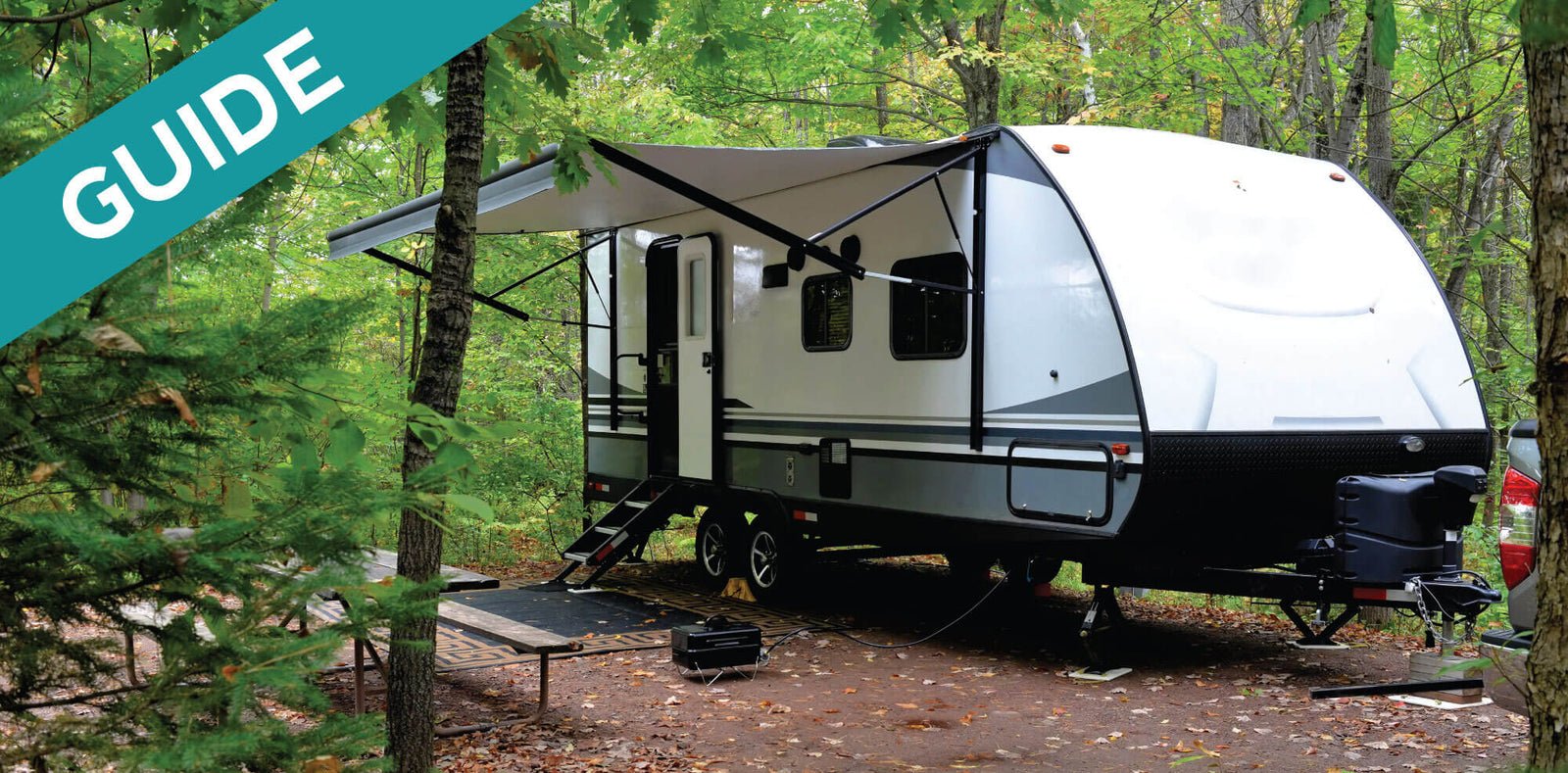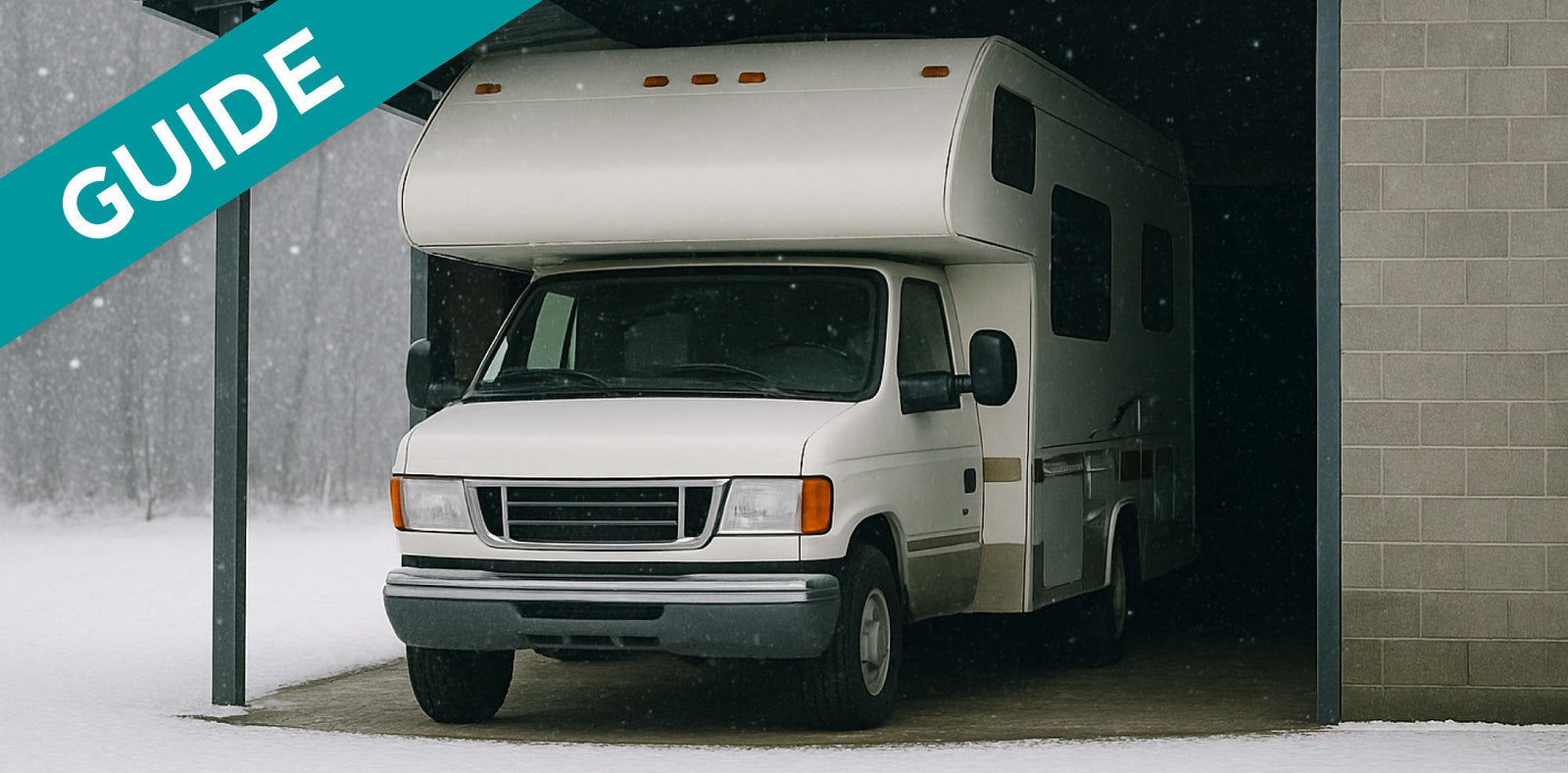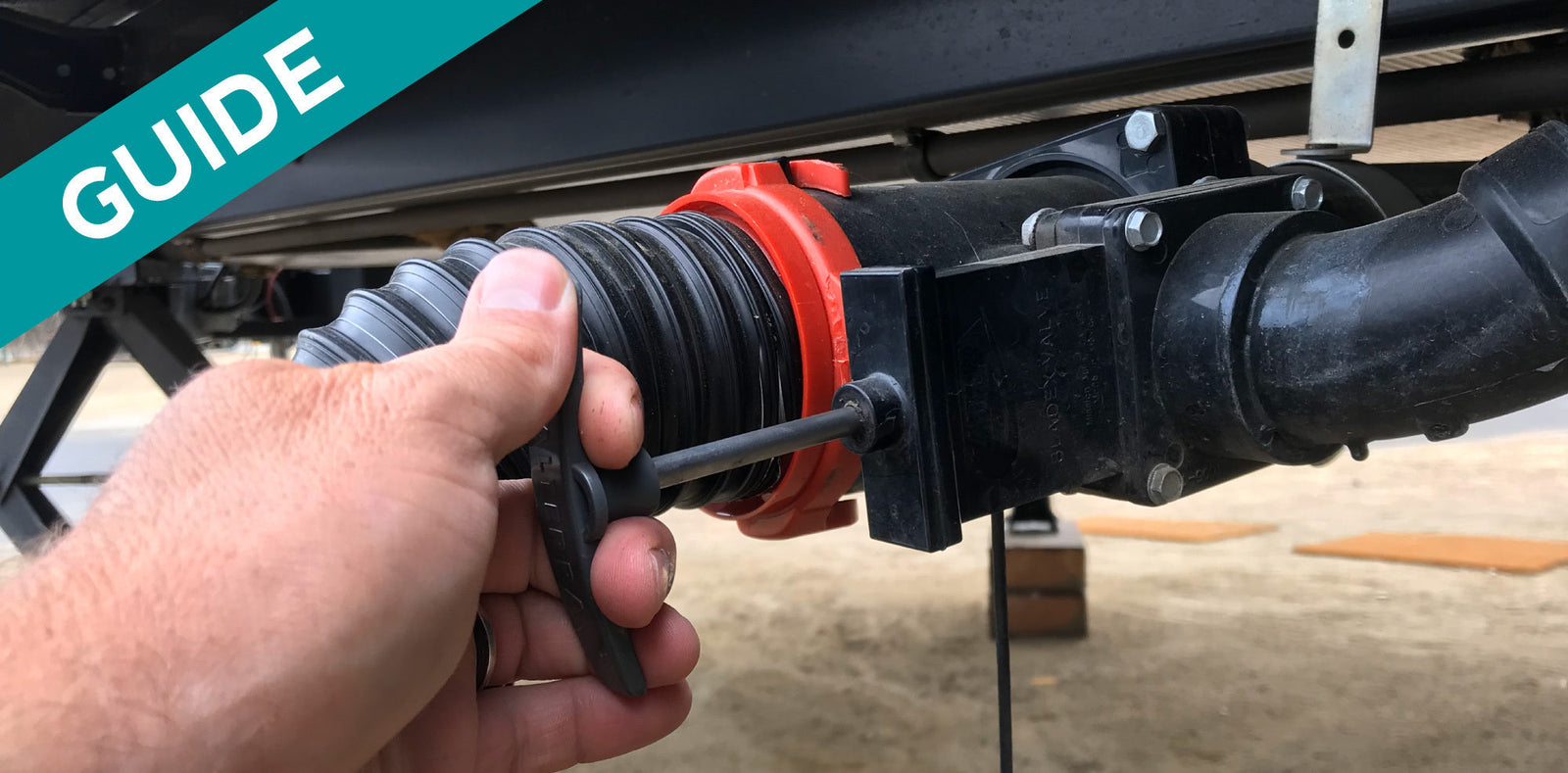
Renting an RV can be the start of a fun, exciting, and affordable adventure, especially when compared to traditional travel. But if you’re not careful, your trip can also become expensive, fast. Splurging on luxury models, booking last minute, and not factoring in all of the costs associated with a rental can really add up.
To avoid blowing your budget while out on the road, and enjoy the freedom and flexibility that RVing is all about, we’ve put together some helpful tips that can keep you on budget while enjoying the trip of a lifetime. Let’s get started.
Key Points About Renting RVs on a Budget
- Choosing the right type of RV for your needs, and budget, is the first and most important step. Determine whether you want to tow or drive the RV, what size camper you need, the amenities you’re looking for, the average gas mileage, and if there are additional mileage fees and generator costs.
- Booking your RV rental and campsites in advance will save you hundreds of dollars, especially during peak travel season.
- Plan your meals so that you aren’t overspending on eating out throughout your trip.
- Utilize rental platforms, research affordable options like public campgrounds, and take advantage of promotional offers to save money throughout the trip.
How to Choose an Affordable RV Rental
Choosing an affordable RV rental isn’t as simple as choosing the cheapest option, there are a variety of important factors to consider.
1. Choose the Right RV Model
There are a variety of RV models that are specifically designed to suit the needs of different travelers. Some campers prefer to tow their RV, allowing for increased amenities and a vehicle that can be used to visit nearby locations. While others may want a more seamless, rent-and-go option, choosing motorhomes that can be driven.
Towable RV Models
These models typically consist of travel trailers, fifth wheels, and pop-up campers. They are available in a variety of sizes, including small, compact options all the way up to models with up to five slide outs that allow for the largest RV footprint.
Comparing the different towable RV models:
- Fifth Wheel (Sleeps 6-8 people): Usually includes an overbed hitch with slide outs, full size kitchens and islands, and master bedrooms, making them the biggest and most indulgent option.
- Travel Trailer (Sleeps 2-6 people): Versatile option that allows for a wider range of amenities, and offered in a variety of sizes to suit your needs.
- Pop-Up Trailer (Sleeps 2-8 people): Lightest option due to the way the camper collapses and folds in for storage or when being towed. Easier to tow and park than the other towable options. Expands to a larger size with spacious sleeping areas.
Motorized RV Models
Motorized RVs are available in different motorhome classes that correspond to their size and amenities.
Comparing the different classes of motorhomes:
- Class A Motorhome (Sleeps 6-8 people): Largest, most expensive, high-end options that can accommodate larger groups and families. They often include secondary sleeping spaces, and full-size amenities.
- Class B+ Motorhome (Sleeps 2-4 people): Are hybrid models that incorporate features from both Class B and Class C motorhomes. These models may include a stand-up shower/bath, versus the small wet bath in a standard Class B.
- Class B Motorhome (Sleeps 1-2 people): Despite the name, Class B motorhomes are the smallest option, and are often referred to as van campers. Accommodating 1-2 people, these models are the cheapest in terms of gas mileage and parking, but offer limited storage and cabin space.
- Class C Motorhome (Sleeps 4-6 people): These models usually offer some indulgent amenities and are the middle ground between Class A and Class B motorhomes. These models are popular for the balance they offer between space and comfort.
Once you determine the style, amenities, and size of the RV you’d like to rent, you can compare their prices to find the right combination of features at an affordable cost. You may find that opting for a different model that still offers most of the features you’re looking for can save you hundreds of dollars throughout the course of your trip.
RV Model Rental Price Comparison Chart
To compare your options quickly and easily, let’s take a look at the average rental cost per night for each type of RV model. Please note that these prices are estimates, and prices can fluctuate based on the season, your location, and more.
| RV Type | Average Rental Cost Per Night |
|---|---|
| Class A | $313 |
| Class B+ | $250 |
| Class B | $228 |
| Class C | $214 |
| Fifth Wheel | $168 |
| Travel Trailer | $113 |
| Pop-Up Trailer | $90 |
While renting the RV itself is the first step, you also need to include the associated mileage to get a more comprehensive cost estimate.
2. Consider RV Mileage
Aside from the size, style, and amenities included in each type of RV, the mileage is another thing to factor in when considering the cost.
First, consider the type of trip you’re planning to take. Are you planning for an intimate couples trip that involves driving to a lot of different locations? Or is the trip geared toward a family adventure in one major location that you’ll be enjoying for the duration? The amount of driving you plan to do can affect gas costs dramatically, so keep that in mind when choosing your rental.
RV Model Mileage Comparison Chart
Below is the estimated mileage associated with each RV type, but exact mileage will vary considerably based on the RV model, vehicle condition, environmental factors, and even your driving habits.
| RV Type | Mileage |
|---|---|
| Class A | 6-8 mpg |
| Class B+ | 12-15 mpg |
| Class B | 14-18 mpg |
| Class C | 8-13 mpg |
| Fifth Wheel | 9-12 mpg |
| Travel Trailer | 10-13 mpg |
| Pop-Up Trailer | 14-19 mpg |
Before your trip, it can be helpful to calculate how many miles your trip will be, and then calculate the gas mileage for the vehicle you’ll be using to more accurately plan your budget.
Easily estimate the gas cost for your trip with this handy tool: RV Gas Cost Calculator
Important Note: If you are renting a towable RV model, the added weight of the vehicle will affect your gas mileage.
3. Include Additional RV Rental Fees in the Budget
As with any type of rental, there are additional fees that are added on to the standard cost per night. Let’s take a closer look at additional costs to budget for when renting an RV.
Additional RV rental fees can include:
- Extra Mileage: Some RV rentals include mileage fees ($0.25-$0.50 per mile), so be mindful of the costs associated with additional mileage before signing the rental agreement. RV rentals may come with unlimited mileage included, while others have a specific number of free miles.
- Generator Usage: If your RV rental includes a generator, you may also incur a usage fee ($3-$5 per hour). Sometimes a certain number of free hours is included with the rental, while others may charge for all generator usage. Make sure you understand how generator usage and fees work before your trip.
- Cleaning: Similar to car rental, RV listings may include additional cleaning fees ranging from $25-$300. If you return the RV clean and in the condition you received it, you may be able to avoid the extra cost. Confirm what things can cause a cleaning fee, and what things are considered normal use.
- Dumping: The average cost to dump an RV is between $5-$25 while you’re out on the road, but if you return the RV without dumping your tanks, you may be charged a higher dumping fee. Dumping fees can range anywhere from $35-$400, so dumping yourself before returning the RV is generally recommended.
- Propane: You may also be charged for propane refills, which can add $18-$25 for a 20-pound tank or $25-$40 for a 33-pound tank, and prices can vary depending on whether you’re refilling or exchanging tanks and based on your location.
- Campground: If you plan to stay at campgrounds, you’ll also need to budget for those fees. Campgrounds and resorts with a lot of amenities like pools, and electric, water, and sewer hookups are going to be more expensive than basic campsites with no hookups. Consider staying at basic campgrounds for most of your camping trip, and splurging for a nicer location on only one, or a few, of the nights to help reduce costs.
- Service & Booking: Common with most rental services, you may be charged RV service and booking fees that can range anywhere from 5%-20% of the booking subtotal. Consider rental services with lower fees to keep your trip within your budget.
- Pet Deposit: Pet-friendly RV rentals may include an extra deposit ranging from $100-$300, or charge you extra to allow your pets to join you out on the road. Make sure to confirm whether the deposit is refundable or non-refundable, as this varies between companies.
- Tolls: Depending on where you’re traveling, you’ll want to factor in toll road costs which can range from $2-$90 per toll point. The huge range of toll point costs is based purely on location, so confirm the toll roads you may be taking throughout your trip, and include those in your budget. Use apps like Tollsmart or TollGuru to help calculate tolls ahead of time.
- Delivery & Setup: Many rental services offer RV delivery and setup that can cost anywhere from $150-$300 for a flat fee, but may also include mileage-based fees between $0.50-$5 per mile. Combined fees are also common, where the first 25-50 miles may cost $350, with mileage fees added on beyond that distance.
- Insurance: RV rental insurance varies significantly based on the model you choose, but you can expect to pay somewhere between $15-$70 per day.
- Security Deposit: Many RV rentals include a refundable security deposit that can range from $500-$1,500 depending on the company and the RV model.
As you can see, there are a lot of additional fees and costs that you need to keep in mind in order to stay within your RV rental budget.
Book in Advance to Unlock Major Savings
Whenever you’re planning a camping trip, one of the key ways to save money is to book everything in advance. By booking your RV rental and campsites in advance, you not only have better selection, but can research to find the best offers available.
Booking ahead can save you anywhere from 5%-30% on the total cost of your trip. For example, in the off season you might pay $35 per night for a spot, but during peak season the same spot could be over $50 per night.
When booking ahead, you can often find lower rental rates, lower campsite fees, and may be able to avoid certain surcharges. Additionally, if you plan your trip in the off-season, you can enjoy reduced rates, and avoid peak-season crowds and price increases.
Plan Meals: Save Money & Eat Healthier
Another way to save when renting an RV is by planning your meals ahead and cooking yourself, rather than eating out during your entire trip. The cost of eating in vs. eating out varies based on your location, where you choose to eat, and what you choose to eat.
On average, eating in costs anywhere between $3.50-$6 per person, while eating out costs anywhere between $12-$25 per person. Over the course of a week-long trip, you can save substantially by planning and cooking your own meals.
Not to mention, buying and preparing your own food allows you to control ingredients and portions better, helping your family stay healthy and feel their best while traveling. That being said, a special dinner out, or a few fun meals while out on the road are encouraged, and can still make it into the travel budget.
Rental Platforms, Public Campgrounds & Promotional Offers
Rather than trying to budget and plan for your trip on your own, it can be very helpful to utilize rental platforms and services to help you research, compare, and land the most affordable rental options.
RV rental platforms like RVshare and Outdoorsy can be incredibly helpful, and provide all the information you need in one convenient location. They also provide links to affordable public campgrounds, and help you save on daily fees. Additionally, using RV rental platforms can give you discounts and promotions (sometimes up to 50% off) to use when booking at campgrounds and resorts.
Cost Comparison: 7-Day RV Vacation vs. Traditional Vacation
Now that we’ve covered some of the best ways to budget accurately for RV rentals, let’s compare the cost difference between an average RV vacation versus a traditional vacation for a family of four embarking on a 7-day trip.
7-Day RV Vacation
Let’s look at some of the most basic costs associated with a 7-day RV vacation for a family of four.
- RV Rental (Total: $1,491): Class C Motorhome (middle ground) at approximately $213 per night for 7 nights.
- Fuel (Total: $350): Assuming a round trip of 1,000 miles, with fuel efficiency of 10 mpg, and fuel priced at $3.50 per gallon.
- Campground Fees ($430): Estimating 5 nights at basic campgrounds for $50 per night, and 2 nights at a full-hookup campground for $90 per night.
- Food ($600): Considering eating in for 5 days with 3 meals per day at $4 per person for a total of $48 per day, and eating out for 2 days with 3 meals per day at $15 per person for $180 per day.
- Total: $2,871
7-Day Traditional Vacation (Flight & Hotel)
Now we’ll look at the most basic costs associated with a 7-day traditional vacation for a family of four.
- Round-Trip Flights ($1,200): Assuming an average of $300 per ticket per person.
- Rental Car ($546): Using the daily average of $78 per day for 7 days.
- Hotel ($1,390): Estimated 5 nights at the average of $178 per night, with 2 nights at a more expensive hotel or resort at $250 per night.
- Food ($1,260): Accounting for eating out for 3 meals per day at $15 per person at $180 per day for 7 days.
- Total: $4,396
Total Potential Savings with RV Vacation: $1,525
According to a study by the RV Industry Association, RV vacations can be up to 60% less expensive for a four-person travel party compared to other types of vacation travel.
Important Note: The estimations of RV rental cost and standard vacation costs in this article were made on 10/15/2025.
Hit the Road Smarter With Affordable RV Rentals
By carefully planning your trip, renting an RV can be one of the most cost-effective and rewarding ways to travel. Start by choosing an affordable model that suits your needs without going overboard on amenities and add-ons, make sure to factor in gas mileage, and don’t forget to include additional fees when budgeting.
Booking in advance will reward you by helping you save hundreds when booking rentals and campsites, buying and preparing your own food cuts costs dramatically, and utilizing online platforms and promotions can give you an extra edge. Ultimately, RV rentals let you choose your own adventure, allowing you to take control of your destination and your spending.
Chances are if you’re already dreaming about RV travel, you may find yourself owning one someday. When that time comes, Unique Camping + Marine is your trusted partner when it comes to keeping your RV’s wastewater systems running smoothly.

Prevent Common Problems In Your Tanks!
From misreading sensors, preventing clogs, or eliminating odors, we've got you covered no matter how you camp! All our best holding tank tips and trick information plus more can be found conveniently in one place when you download our FREE Unique Method Field Guide PDF. Achieve holding tank bliss today!
Get The Free Download Get The Free Download



